MPI researcher joins University of Southampton
Dr. Filip Marković, until last month a postdoctoral researcher at MPI-SWS, has joined the faculty of the University of Southampton as Senior Lecturer. Congratulations, Filip, and all the best!
Dr. Filip Marković, until last month a postdoctoral researcher at MPI-SWS, has joined the faculty of the University of Southampton as Senior Lecturer. Congratulations, Filip, and all the best!

Outstanding undergraduate and Masters students are invited to apply to the 9th annual Cornell, Maryland, Max Planck Pre-doctoral Research School. Applications are requested from students in computer and information science, computer engineering, or a related discipline. The 9th edition of this annual series of week-long schools will focus on emerging research trends in computer science.
The small, select group of attendees will be exposed to state-of-the-art research in computer science, have the opportunity to interact one-on-one with internationally leading scientists from three of the foremost academic institutions in research and higher learning in the US and in Europe,
...Outstanding undergraduate and Masters students are invited to apply to the 9th annual Cornell, Maryland, Max Planck Pre-doctoral Research School. Applications are requested from students in computer and information science, computer engineering, or a related discipline. The 9th edition of this annual series of week-long schools will focus on emerging research trends in computer science.
The small, select group of attendees will be exposed to state-of-the-art research in computer science, have the opportunity to interact one-on-one with internationally leading scientists from three of the foremost academic institutions in research and higher learning in the US and in Europe, and network with like-minded students. They will get a sense of what it is like to pursue an academic or an industrial research career in computer science and have a head start when applying for graduate school.
For full consideration, applications should be received by February 15, 2025 AOE. Travel and accommodation will be covered for accepted students.
Further information about the school and how to apply can be found at https://cmmrs.mpi-sws.org
MPIs and their partner universities offer a vibrant, dynamic, multi-cultural environment for research and education. We currently have openings for doctoral positions in several graduate programs. To help you choose which program is the best fit, we recommend you read the short descriptions on the MPI-SWS careers page. You can apply to more than one program, but please do so only if more than one program matches your interests.
...MPIs and their partner universities offer a vibrant, dynamic, multi-cultural environment for research and education. We currently have openings for doctoral positions in several graduate programs. To help you choose which program is the best fit, we recommend you read the short descriptions on the MPI-SWS careers page. You can apply to more than one program, but please do so only if more than one program matches your interests. If you are interested in applying to one or more of these programs, please note that the application deadlines are rapidly approaching.
Highly qualified, broadly interested students who would like to have the opportunity to work with faculty at any MPI or partner university should apply to the cs@max planck program. Applications are due by December 31.

Students who would additionally like to have the opportunity to conduct part of the doctoral program at a top US university should also apply to the Maryland Max Planck Ph.D. Program. Applications are due by December 20.
Students who are already committed to a specific research area should also apply to one of the more specialized programs.
For more information, see the overview of our graduate programs, research careers at MPI-SWS, or apply for positions through our application portal.
The Max Planck Institutes (MPIs) for Informatics, for Security & Privacy, and for Software Systems invite applications for tenure-track faculty in all areas of computer science and its intersection with other disciplines. We expect to fill several positions.
A doctoral degree in computer science or related fields and an outstanding research record are required. Successful candidates are expected to build a team and pursue a highly visible research agenda, both independently and in collaboration with other groups.
...The Max Planck Institutes (MPIs) for Informatics, for Security & Privacy, and for Software Systems invite applications for tenure-track faculty in all areas of computer science and its intersection with other disciplines. We expect to fill several positions.
A doctoral degree in computer science or related fields and an outstanding research record are required. Successful candidates are expected to build a team and pursue a highly visible research agenda, both independently and in collaboration with other groups.
The institutes are part of a network of over 80 MPIs, Germany’s premier basic-research institutes. MPIs have an established record of world-class, foundational research in the sciences, technology, and the humanities. The institutes offer a unique environment that combines the best aspects of a university department and a research laboratory: Faculty enjoy full academic freedom, lead a team of doctoral students and post-docs, and have the opportunity to teach university courses; at the same time, they enjoy ongoing institutional funding in addition to third-party funds, a technical infrastructure unrivaled for an academic institution, as well as internationally competitive compensation.
We maintain an international and diverse work environment and seek applications from outstanding researchers worldwide. The working language is English; knowledge of the German language is not required for a successful career at the institutes.
Qualified candidates should apply using the application portal at https://shlink.mpi-sws.org/faculty. For full consideration, applications should be submitted by December 1st, 2024.
MPIs are committed to fostering a diverse, inclusive, and global academic community, and consider qualified applicants for employment without discrimination on the basis of gender, race, disability, ethnic or social origin, or any other legally protected status. We particularly encourage applications from groups that are underrepresented in computer science. We welcome applications from dual-career couples and will do our best to try and accommodate their needs.
The initial tenure-track appointment is for six years. A permanent contract can be awarded upon a successful tenure evaluation in the sixth year.
* W2 German Federal Civil Service Renumeration Act (BBesG)

Andrea Lattuada will join MPI-SWS as a Research Group Leader in September 2024. Before joining MPI-SWS, Andrea worked as a researcher in the VMware Research Group. He completed his PhD at ETH Zurich, where he focused on systems for distributed data processing and systems software verification.
Andrea builds verification tools and formally verified systems with a focus on pragmatism. He co-started and co-leads the Verus project. Verus is a tool used by various industry and academic projects to rapidly verify the correctness of systems code written in Rust.
...Andrea Lattuada will join MPI-SWS as a Research Group Leader in September 2024. Before joining MPI-SWS, Andrea worked as a researcher in the VMware Research Group. He completed his PhD at ETH Zurich, where he focused on systems for distributed data processing and systems software verification.
Andrea builds verification tools and formally verified systems with a focus on pragmatism. He co-started and co-leads the Verus project. Verus is a tool used by various industry and academic projects to rapidly verify the correctness of systems code written in Rust. At MPI, his research group will continue to leverage software verification to substantially improve the safety and reliability of systems software. This will involve developing new and more powerful techniques to reason about complex software, improving the usability and efficiency of verification tools, and devising principled and cost-effective development disciplines for verified software. Andrea also collaborates with researchers at ETH Zürich on new programming models for the cloud, and on building a verified operating system with a compact, well-specified programming interface.
Andrea’s group has open positions for doctoral students, postdocs, and interns who are interested in working on systems software verification. Current projects focus on making verification more practical and usable by engineers and on leveraging advanced reasoning techniques to tackle complex software. Andrea’s website has more details on his research profile.
MPI-SWS PhD students Michalis Kokologiannakis and Michael Sammler have accepted tenure-track faculty positions at ETH Zurich and the Institute of Science and Technology Austria, respectively.
Michalis Kokologiannakis, a doctoral student in the Software Analysis and Verification group, has accepted a tenure-track faculty position at ETH Zurich. Michalis is broadly interested in programming languages, compilers, weak memory models, and software verification. More specifically, he is interested in developing novel algorithmic techniques for verifying concurrent software,
...MPI-SWS PhD students Michalis Kokologiannakis and Michael Sammler have accepted tenure-track faculty positions at ETH Zurich and the Institute of Science and Technology Austria, respectively.
Michalis Kokologiannakis, a doctoral student in the Software Analysis and Verification group, has accepted a tenure-track faculty position at ETH Zurich. Michalis is broadly interested in programming languages, compilers, weak memory models, and software verification. More specifically, he is interested in developing novel algorithmic techniques for verifying concurrent software, while also taking into account the weak memory models employed by modern microprocessors. You can find out more about his work at https://people.mpi-sws.org/~michalis/.
Michael Sammler, a doctoral student in the Foundations of Computer Security and Foundations of Programming groups, has accepted a tenure-track faculty position at the Institute of Science and Technology Austria (ISTA). Before starting at ISTA, he will spend one year as a postdoctoral fellow in the Programming Methodology Group at ETH Zurich. Michael's research interests lie in implementing efficient and practical systems and formally proving properties about them. In particular, his research focuses on building formal verification tools for low-level systems code that combine foundational proofs in a proof assistant with a high degree of automation. You can find out more about his work at https://people.mpi-sws.org/~msammler/ and https://ista.ac.at/en/research/sammler-group/.
Congratulations Michael and Michalis!
MPI-SWS faculty emmber Mariya Toneva has been selected as one of five Program Co-Chairs of the 45th Annual Meeting of the Cognitive Science Society (CogSci 2024), to be held in Rotterdam, July 24–27, 2024.
With over 1000 attendees, CogSci is the premier multidisciplinary venue that aims to understand the nature of the human mind, featuring work from Artificial Intelligence, Linguistics, Anthropology, Psychology, Neuroscience, Philosophy, and Education.

Anne-Kathrin Schmuck has been appointed as new tenure-track faculty as of July 1st, 2023, after leading a prestigious externally funded Emmy-Noether research group hosted at MPI-SWS since 2020. Her group conducts fundamental research at the intersection of control engineering, cybernetics, and computer science to develop reliable and performant control software for cyber-physical systems. In particular, her work addresses the challenge of orchestrating continuous physical components and discrete logical decision making units within these highly automated and safety-critical technological systems.
...Anne-Kathrin Schmuck has been appointed as new tenure-track faculty as of July 1st, 2023, after leading a prestigious externally funded Emmy-Noether research group hosted at MPI-SWS since 2020. Her group conducts fundamental research at the intersection of control engineering, cybernetics, and computer science to develop reliable and performant control software for cyber-physical systems. In particular, her work addresses the challenge of orchestrating continuous physical components and discrete logical decision making units within these highly automated and safety-critical technological systems.
Anne has been part of the MPI-SWS faculty as an independent research group leader since 2020. She holds a Dipl.-Ing. (M.Sc.) degree in engineering cybernetics from OvGU Magdeburg, Germany and a Dr.-Ing. (Ph.D.) degree in electrical engineering from TU Berlin, Germany. She joined MPI-SWS as a postdoctoral researcher in the area of formal methods in 2015.
Pramod Bhatotia, who completed his doctoral studies at MPI-SWS, has received the 2023 EuroSys Jochen Liedtke Young Researcher Award.
The EuroSys Jochen Liedtke Young Researcher Award was created in 2014 by ACM EuroSys to reward junior European researchers who have demonstrated exceptional creativity and innovation in systems research, broadly construed. The award is given annually at the EuroSys conference, in memory of Jochen and his fundamental contributions to the systems community.
...Pramod Bhatotia, who completed his doctoral studies at MPI-SWS, has received the 2023 EuroSys Jochen Liedtke Young Researcher Award.
The EuroSys Jochen Liedtke Young Researcher Award was created in 2014 by ACM EuroSys to reward junior European researchers who have demonstrated exceptional creativity and innovation in systems research, broadly construed. The award is given annually at the EuroSys conference, in memory of Jochen and his fundamental contributions to the systems community. The award is accompanied by a 2,000 EUR cash prize generously provided by RedHat.
Congratulations, Pramod!
Georg Zetzsche, head of the MPI-SWS Models of Computation group, has been awarded a 2022 ERC Starting Grant. Over the next five years, his project FINABIS will receive funding of 1.48 million euros for research on "Finite-state abstractions of infinite-state systems." Read more about the FINABIS project below.
In addition, MPI-SWS and University of Saarland alumnus Pramod Bhatotia, who is currently a professor at TU Munich, has also received a 2022 ERC Starting Grant for his project "DOS: A Decentralized Operating System".
...Georg Zetzsche, head of the MPI-SWS Models of Computation group, has been awarded a 2022 ERC Starting Grant. Over the next five years, his project FINABIS will receive funding of 1.48 million euros for research on "Finite-state abstractions of infinite-state systems." Read more about the FINABIS project below.
In addition, MPI-SWS and University of Saarland alumnus Pramod Bhatotia, who is currently a professor at TU Munich, has also received a 2022 ERC Starting Grant for his project "DOS: A Decentralized Operating System".
ERC grants are the most prestigious and the most competitive European-level awards for ground-breaking scientific investigations. This year, less than 14% of all ERC Starting Grant applicants across all scientific disciplines received the award, with only 17 awardees in Computer Science across all of Europe and Israel!
These grants carry substantial research funding -- each winner receives up to 1.5 Million Euros over a period of 5 years to carry out their research. You can find more information about 2022 ERC Starting Grants here: https://erc.europa.eu/news-events/news/starting-grants-2022-call-results
The FINABIS Project
A fundamental question in computing is: What can programs find out algorithmically about other programs? If we want to analyze arbitrary programs, the answer is long known and simple: Essentially nothing. However, in recent decades, we have seen that if we restrict the class of analyzed programs, there is a rich variety of approaches to checking various important properties.
Understanding how to restrict the analyzed programs (while retaining as much expressivity as possible) has gained practical importance in the area of software verification. Here, algorithms for analyzing programs can be used to automatically check their correctness.
The available approaches to analyze programs typically transform a given program into an abstract model of computation. To account for program behaviors for all possible inputs, this usually results in models with infinitely many states. Designing algorithms that can work with such infinite-state systems poses a challenge. For example, we still do not have a clear picture of which types of infinite state spaces permit checking simple safety properties. In formal terms: For which infinite-state systems is reachability decidable?
In the FINABIS project ("Finite-state abstractions of infinite-state systems"), we are studying ways to transform infinite-state systems into finite-state systems that preserve some pertinent aspects of the original system. Understanding such transformations helps in two ways: First, finite-state systems are easier to work with algorithmically. So if our transformation preserves enough of the original system's behavior, we can simply analyze the finite system instead. Second, the specific transformations we study (subword closures and separability problems), and how we study them, are closely connected to understanding the decidability and complexity of reachability and also several other long-standing open problems in theoretical computer science.

The Max Planck Institutes in Computer Science invite applications for tenure-track faculty in all areas of computer science. We expect to fill several positions.
A doctoral degree in computer science or related areas and an outstanding research record are required. Successful candidates are expected to build a team and pursue a highly visible research agenda, both independently and in collaboration with other groups.
The institutes are part of a network of over 80 Max Planck Institutes,
...The Max Planck Institutes in Computer Science invite applications for tenure-track faculty in all areas of computer science. We expect to fill several positions.
A doctoral degree in computer science or related areas and an outstanding research record are required. Successful candidates are expected to build a team and pursue a highly visible research agenda, both independently and in collaboration with other groups.
The institutes are part of a network of over 80 Max Planck Institutes, Germany's premier basic-research organisations. MPIs have an established record of world-class, foundational research in the sciences, technology, and the humanities. The institutes offer a unique environment that combines the best aspects of a university department and a research laboratory: Faculty enjoy full academic freedom, lead a team of doctoral students and postdocs, and have the opportunity to teach university courses; at the same time, they enjoy ongoing institutional funding in addition to third-party funds, a technical infrastructure unrivaled for an academic institution, as well as internationally competitive compensation.
We maintain an international and diverse work environment and seek applications from outstanding researchers worldwide. The working language is English; knowledge of the German language is not required for a successful career at the institutes.
Qualified candidates should apply on our application website (apply.cis.mpg.de). Review of applications will begin by December 1st, 2022.
The Max Planck Society wishes to increase the number of women in those areas where they are underrepresented. Women are therefore explicitly encouraged to apply. The Max Planck Society is also committed to increasing the number of employees with severe disabilities in its workforce. Applications from persons with severe disabilities are expressly desired.
The initial tenure-track appointment is for five years; it can be extended to seven years based on a positive midterm evaluation in the fourth year. A permanent contract can be awarded upon a successful tenure evaluation in the sixth year.
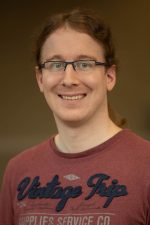
Ralf Jung, a doctoral student in the Foundations of Programming group, has accepted a position as a tenure-track assistant professor in the Department of Computer Science at ETH Zurich, Switzerland. Congratulations Ralf!
Ralf's primary research interest is in developing formal foundations and tools that establish machine-checked guarantees for real-world software systems. To achieve this, his work spans all the way from foundational and deeply theoretical to applied, from proving theorems to developing tools used by other researchers and software developers..
...Ralf Jung, a doctoral student in the Foundations of Programming group, has accepted a position as a tenure-track assistant professor in the Department of Computer Science at ETH Zurich, Switzerland. Congratulations Ralf!
Ralf's primary research interest is in developing formal foundations and tools that establish machine-checked guarantees for real-world software systems. To achieve this, his work spans all the way from foundational and deeply theoretical to applied, from proving theorems to developing tools used by other researchers and software developers.. You can find out more about his work at https://research.ralfj.de/.
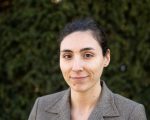
Mariya Toneva joins the tenure-track faculty at our institute starting September 2022. Mariya’s research is at the intersection of machine learning, natural language processing, and neuroscience. Her group bridges language in machines with language in the brain, with a focus on building computational models of language processing in the brain that can also improve natural language processing systems.
Prior to joining MPI-SWS, Mariya conducted research as a C.V. Starr Fellow at the Princeton Neuroscience Institute.
...Mariya Toneva joins the tenure-track faculty at our institute starting September 2022. Mariya’s research is at the intersection of machine learning, natural language processing, and neuroscience. Her group bridges language in machines with language in the brain, with a focus on building computational models of language processing in the brain that can also improve natural language processing systems.
Prior to joining MPI-SWS, Mariya conducted research as a C.V. Starr Fellow at the Princeton Neuroscience Institute. She received her Ph.D. in a joint program between Machine Learning and Neural Computation from Carnegie Mellon University, and her B.S. in Computer Science and Cognitive Science from Yale University.
MPI-SWS Director Derek Dreyer has been selected as the program chair of the 51st ACM SIGPLAN Symposium on Principles of Programming (POPL'24), to be held in London January 17–19, 2024.
POPL is the premier venue in the area of programming languages and, alongside PLDI, ranks as one of the top two international conferences on this topic.
Principles of Programming Languages is the premier forum for the fundamental innovations in design, definition,
...MPI-SWS Director Derek Dreyer has been selected as the program chair of the 51st ACM SIGPLAN Symposium on Principles of Programming (POPL'24), to be held in London January 17–19, 2024.
POPL is the premier venue in the area of programming languages and, alongside PLDI, ranks as one of the top two international conferences on this topic.
Principles of Programming Languages is the premier forum for the fundamental innovations in design, definition, analysis, transformation, and implementation of programming languages, programming systems, and programming abstractions.
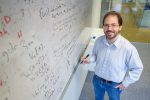
Derek Dreyer, head of the Foundations of Programming research group since 2008, has been appointed as a Scientific Member of the Max Planck Society and Scientific Director of MPI-SWS as of May 1, 2022.
Derek became known for his pioneering work in programming languages and verification, with a particular emphasis on building rigorous foundations for establishing the reliability and correctness of realistic software systems. In recent years, he and his group have become especially well known for their work on the Iris and RustBelt verification frameworks,
...Derek Dreyer, head of the Foundations of Programming research group since 2008, has been appointed as a Scientific Member of the Max Planck Society and Scientific Director of MPI-SWS as of May 1, 2022.
Derek became known for his pioneering work in programming languages and verification, with a particular emphasis on building rigorous foundations for establishing the reliability and correctness of realistic software systems. In recent years, he and his group have become especially well known for their work on the Iris and RustBelt verification frameworks, both implemented in the Coq proof assistant. Developed initially in 2015, Iris is a system for developing and deploying higher-order concurrent separation logics; though only 7 years old, it has already been used in over 60 papers published in top venues in programming languages. One of the most significant applications of Iris is RustBelt, which constitutes the first formal, machine-checked foundation for verifying the safety of the increasingly popular systems programming language Rust. These large-scale verification efforts place Dreyer's group at the forefront of programming languages research worldwide.
Derek has received numerous accolades for his research, teaching, and service, including the 2017 ACM SIGPLAN Robin Milner Young Researcher Award, a 2015 ERC Consolidator Grant, multiple Distinguished Paper Awards at top conferences like POPL, PLDI, and OOPSLA, the OOPSLA'18 Distinguished Reviewer Award, and most recently, the "Busy Beaver Award" at Saarland University for outstanding commitment to teaching. Under his mentorship, members of his group have also received numerous awards, including the prestigious ACM SIGPLAN John C. Reynolds Doctoral Dissertation Award and ACM Doctoral Dissertation Honorable Mention Award (for Dr. Ralf Jung).
Derek was born in New York City in 1980. He holds a Bachelor's in Mathematics and Computer Science from New York University and received his PhD in Computer Science from Carnegie Mellon University in 2005. From 2005 to 2007, he was a Research Assistant Professor at the Toyota Technological Institute at Chicago. He joined MPI-SWS as a tenure-track faculty in January 2008, only a few years after the Institute's founding, and has been an integral member ever since. We are thus very proud to be able to retain him as a Scientific Director of the institute.

Sandra Kiefer has joined MPI-SWS as a research group leader, effective April 1, 2022. Her research interests include algorithmic and structural graph theory as well as logic in computer science, with a recent focus on the applicability of tools from these areas to the study of biochemical networks.
Sandra obtained her Ph.D. from RWTH Aachen University. For her work on combinatorial and logical approaches to graph comparison, she received the Ackermann Award 2020,
...Sandra Kiefer has joined MPI-SWS as a research group leader, effective April 1, 2022. Her research interests include algorithmic and structural graph theory as well as logic in computer science, with a recent focus on the applicability of tools from these areas to the study of biochemical networks.
Sandra obtained her Ph.D. from RWTH Aachen University. For her work on combinatorial and logical approaches to graph comparison, she received the Ackermann Award 2020, the EACSL Outstanding Dissertation Award for Logic in Computer Science. After her Ph.D. studies, Sandra was a postdoctoral researcher at RWTH and at the University of Warsaw. She holds Bachelor’s degrees in Bioinformatics and Mathematics and a Master’s degree in Mathematics from Goethe University Frankfurt. She has also completed an M.Ed. degree in Mathematics and Spanish.
The Max Planck Institutes for Informatics (Saarbruecken), Software Systems (Saarbruecken and Kaiserslautern), and Security and Privacy (Bochum) invite applications for tenure-track faculty in all areas of computer science. We expect to fill several positions.
A doctoral degree in computer science or related areas and an outstanding research record are required. Successful candidates are expected to build a team and pursue a highly visible research agenda, both independently and in collaboration with other groups.
...The Max Planck Institutes for Informatics (Saarbruecken), Software Systems (Saarbruecken and Kaiserslautern), and Security and Privacy (Bochum) invite applications for tenure-track faculty in all areas of computer science. We expect to fill several positions.
A doctoral degree in computer science or related areas and an outstanding research record are required. Successful candidates are expected to build a team and pursue a highly visible research agenda, both independently and in collaboration with other groups.
The institutes are part of a network of over 80 Max Planck Institutes, Germany's premier basic-research organisations. MPIs have an established record of world-class, foundational research in the sciences, technology, and the humanities. The institutes offer a unique environment that combines the best aspects of a university department and a research laboratory: Faculty enjoy full academic freedom, lead a team of doctoral students and postdocs, and have the opportunity to teach university courses; at the same time, they enjoy ongoing institutional funding in addition to third-party funds, a technical infrastructure unrivaled for an academic institution, as well as internationally competitive compensation.
We maintain an international and diverse work environment and seek applications from outstanding researchers worldwide. The working language is English; knowledge of the German language is not required for a successful career at the institutes.
Qualified candidates should apply on our application website (apply.cis.mpg.de). Review of applications will begin by December 1st, 2021.
The Max Planck Society wishes to increase the number of women in those areas where they are underrepresented. Women are therefore explicitly encouraged to apply. The Max Planck Society is also committed to increasing the number of employees with severe disabilities in its workforce. Applications from persons with severe disabilities are expressly desired.
The initial tenure-track appointment is for five years; it can be extended to seven years based on a positive midterm evaluation in the fourth year. A permanent contract can be awarded upon a successful tenure evaluation in the sixth year.

Antoine Kaufmann has joined the tenure-track faculty at our institute, effective October 1, 2021. He has been a member of our faculty as a research group leader since joining MPI-SWS in August 2018. Antoine's research centers on the interplay of software and hardware in modern systems. He is interested in the nascent challenges in designing, implementing, and maintaining hardware-software systems for different application domains, starting with data center networking and machine learning.
Prior to joining MPI-SWS,
...Antoine Kaufmann has joined the tenure-track faculty at our institute, effective October 1, 2021. He has been a member of our faculty as a research group leader since joining MPI-SWS in August 2018. Antoine's research centers on the interplay of software and hardware in modern systems. He is interested in the nascent challenges in designing, implementing, and maintaining hardware-software systems for different application domains, starting with data center networking and machine learning.
Prior to joining MPI-SWS, Antoine received his Ph.D. from the University of Washington, and his Master's and Bachelor's degrees from ETH Zurich.
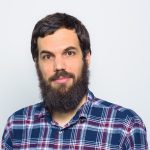
Viktor Vafeiadis, head of the MPI-SWS Software Analysis and Verification group, has been awarded an ERC Consolidator Grant. Over the next five years, his project "PERSIST: A Semantic Foundation for Persistent Programming" will receive almost 2 million euros, which will allow the group to develop rigorous formal foundations for programs interacting with non-volatile memory. Read more about the PERSIST project below.
One of the other recipients of an ERC Consolidator Grant this year is an MPI alumnus: Neel Krishnaswami was an MPI-SWS postdoc with Derek Dreyer,
...Viktor Vafeiadis, head of the MPI-SWS Software Analysis and Verification group, has been awarded an ERC Consolidator Grant. Over the next five years, his project "PERSIST: A Semantic Foundation for Persistent Programming" will receive almost 2 million euros, which will allow the group to develop rigorous formal foundations for programs interacting with non-volatile memory. Read more about the PERSIST project below.
One of the other recipients of an ERC Consolidator Grant this year is an MPI alumnus: Neel Krishnaswami was an MPI-SWS postdoc with Derek Dreyer, and he is currently a faculty member at Cambridge.
ERC grants are the most prestigious and the most competitive European-level awards for ground-breaking scientific investigations. This year, less than 14% of all ERC Consolidator Grant applicants across all scientific disciplines received the award, with only 15 awardees in Computer Science across all of Europe! The ERC Consolidator Grant offers funding for researchers with 7 to 12 years of experience after achieving a PhD. You can find more information about ERC Consolidator Grants awarded this year at https://erc.europa.eu/news/CoG-recipients-2020.
The European Research Council (ERC) is a pan-European funding body that supports cutting-edge research. It offers funding for groundbreaking research projects of the highest scientific quality across Europe, across all research areas. Talented researchers from all over the world can receive funding for excellent research in Europe.
The PERSIST Project
Non-volatile memory (NVM) is an emerging technology that provides orders of magnitude faster access to persistent storage (which preserves its contents after a crash or a power failure) than hard disks. As such, it is expected to radically change how modern applications manage storage, moving away from traditional block-structured file systems to in-memory persistent data structures.
The problem with NVM, however, is that its programming model is standing on very shaky foundations. The persistency semantics of the mainstream architectures is unclear and full of counterintuitive behaviours, which makes writing correct NVM programs a very challenging task.
The project's goal is to develop a solid mathematical basis for determining the semantics of NVM programs and for reasoning about their correctness. More specifically, the plan is to produce:
Björn Brandenburg has been selected as the program chair of the 33rd Euromicro Conference on Real-Time Systems (ECRTS'21), to be held virtually July 5–9, 2021.
ECRTS is the premier European venue in the area of real-time systems and, alongside RTSS and RTAS, ranks as one of the top three international conferences on this topic.
The Max Planck Institutes for Informatics (Saarbruecken), Software Systems (Saarbruecken and Kaiserslautern), and Security and Privacy (Bochum), invite applications for tenure-track faculty in all areas of computer science. We expect to fill several positions.
A doctoral degree in computer science or related areas and an outstanding research record are required. Successful candidates are expected to build a team and pursue a highly visible research agenda, both independently and in collaboration with other groups.
...The Max Planck Institutes for Informatics (Saarbruecken), Software Systems (Saarbruecken and Kaiserslautern), and Security and Privacy (Bochum), invite applications for tenure-track faculty in all areas of computer science. We expect to fill several positions.
A doctoral degree in computer science or related areas and an outstanding research record are required. Successful candidates are expected to build a team and pursue a highly visible research agenda, both independently and in collaboration with other groups.
The institutes are part of a network of over 80 Max Planck Institutes, Germany's premier basic-research organisations. MPIs have an established record of world-class, foundational research in the sciences, technology, and the humanities. The institutes offer a unique environment that combines the best aspects of a university department and a research laboratory: Faculty enjoy full academic freedom, lead a team of doctoral students and postdocs, and have the opportunity to teach university courses; at the same time, they enjoy ongoing institutional funding in addition to third-party funds, a technical infrastructure unrivaled for an academic institution, as well as internationally competitive compensation.
We maintain an international and diverse work environment and seek applications from outstanding researchers worldwide. The working language is English; knowledge of the German language is not required for a successful career at the institutes.
Qualified candidates should apply on our application website (apply.cis.mpg.de). To receive full consideration, applications should be received by December 15th, 2020.
The Max Planck Society wishes to increase the number of women in those areas where they are underrepresented. Women are therefore explicitly encouraged to apply. The Max Planck Society is also committed to increasing the number of employees with severe disabilities in its workforce. Applications from persons with severe disabilities are expressly desired.
The initial tenure-track appointment is for five years; it can be extended to seven years based on a positive midterm evaluation in the fourth year. A permanent contract can be awarded upon a successful tenure evaluation in the sixth year.
Aastha Mehta, a doctoral student in the Distributed Systems group and the Security & Privacy group, has accepted a position as a tenure-track assistant professor in the Department of Computer Science at University of British Columbia, Vancouver, Canada. Congratulations Aastha!
Aastha's research interests span systems security, data privacy, operating systems, and distributed systems. She has worked on building systems for ensuring policy compliance and for mitigating network side-channel leaks in online services. You can find out more about her work at https://people.mpi-sws.org/~aasthakm/.
...Aastha Mehta, a doctoral student in the Distributed Systems group and the Security & Privacy group, has accepted a position as a tenure-track assistant professor in the Department of Computer Science at University of British Columbia, Vancouver, Canada. Congratulations Aastha!
Aastha's research interests span systems security, data privacy, operating systems, and distributed systems. She has worked on building systems for ensuring policy compliance and for mitigating network side-channel leaks in online services. You can find out more about her work at https://people.mpi-sws.org/~aasthakm/.
Isabel Valera, a postdoc alumni of the Human-Centric Machine Learning group, has become full professor in the Department of Computer Science at Saarland University. Congratulations Isabel!
Isabel's research focuses on developing machine learning methods that are flexible, robust, interpretable and fair. Her research can be applied in a broad range of fields, from medicine and psychiatry to social and communication systems. You can find out more about her work at https://ivaleram.github.io/.
Azalea Raad, postdoctoral fellow in the Software Analysis and Verification Group and the Foundations of Programming Group, has accepted a position as Lecturer in the Department of Computing at Imperial College London. Congratulations Azalea!
Azalea's research is in the area of programming languages and verification, spanning several topics including non-volatile memory, persistency semantics, weak memory models, stateless model checking and program logics. You can read more about her work here.
MPI-SWS faculty members Peter Druschel, Keon Jang, and Antoine Kaufmann have been appointed as joint general chairs for the 28th ACM Symposium on Operating Systems Principles (SOSP'21), to be held in Koblenz, Germany from Oct 25 to Oct 28, 2021.
SOSP is a top-tier conference covering the full range of theory and practice of computer systems software.
The Max Planck Institutes for Informatics (Saarbruecken), Software Systems (Saarbruecken and Kaiserslautern), and Security and Privacy (Bochum), invite applications for tenure-track faculty in all areas of computer science. Pending final approval, we expect to fill several positions.
A doctoral degree in computer science or related areas and an outstanding research record are required. Successful candidates are expected to build a team and pursue a highly visible research agenda, both independently and in collaboration with other groups.
...The Max Planck Institutes for Informatics (Saarbruecken), Software Systems (Saarbruecken and Kaiserslautern), and Security and Privacy (Bochum), invite applications for tenure-track faculty in all areas of computer science. Pending final approval, we expect to fill several positions.
A doctoral degree in computer science or related areas and an outstanding research record are required. Successful candidates are expected to build a team and pursue a highly visible research agenda, both independently and in collaboration with other groups.
The institutes are part of a network of over 80 Max Planck Institutes, Germany's premier basic-research organisations. MPIs have an established record of world-class, foundational research in the sciences, technology, and the humanities. The institutes offer a unique environment that combines the best aspects of a university department and a research laboratory: Faculty enjoy full academic freedom, lead a team of doctoral students and post-docs, and have the opportunity to teach university courses; at the same time, they enjoy ongoing institutional funding in addition to third-party funds, a technical infrastructure unrivaled for an academic institution, as well as internationally competitive compensation.
We maintain an international and diverse work environment and seek applications from outstanding researchers worldwide. The working language is English; knowledge of the German language is not required for a successful career at the institutes.
Qualified candidates should apply on our application website (apply.cis.mpg.de). To receive full consideration, applications should be received by December 15th, 2019.
The Max Planck Society wishes to increase the number of women in those areas where they are underrepresented. Women are therefore explicitly encouraged to apply. The Max Planck Society is also committed to increasing the number of employees with severe disabilities in its workforce. Applications from persons with severe disabilities are expressly desired.
The initial tenure-track appointment is for five years; it can be extended to seven years based on a midterm evaluation in the fourth year. A permanent contract can be awarded upon a successful tenure evaluation in the sixth year.
Björn Brandenburg is the general chair of the 26th IEEE Real-Time and Embedded Technology and Applications Symposium (RTAS'20), to be held as part of CPSWeek 2020 in Montreal, Canada from April 22 to April 24, 2020.
RTAS is a top-tier conference with a focus on systems research related to embedded systems or timing issues. The scope of RTAS’20 ranges from traditional hard real-time systems to embedded systems without explicit timing requirements,
...Björn Brandenburg is the general chair of the 26th IEEE Real-Time and Embedded Technology and Applications Symposium (RTAS'20), to be held as part of CPSWeek 2020 in Montreal, Canada from April 22 to April 24, 2020.
RTAS is a top-tier conference with a focus on systems research related to embedded systems or timing issues. The scope of RTAS’20 ranges from traditional hard real-time systems to embedded systems without explicit timing requirements, including latency-sensitive systems with informal or soft real-time requirements.
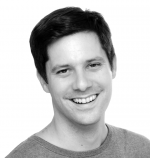
Goran Radanovic joined MPI-SWS as a research group leader on Sep 16, 2019. He is generally interested in studying AI systems, and more specifically in the design and analysis of systems with intelligent and self-interested agents. Particular topics of interest include value-aligned artificial intelligence, human-AI collaboration, and decision making systems with societally-aware utility functions.
Prior to joining MPI-SWS, he was a postdoctoral researcher at Harvard University, where he worked with Prof. David C.
...Goran Radanovic joined MPI-SWS as a research group leader on Sep 16, 2019. He is generally interested in studying AI systems, and more specifically in the design and analysis of systems with intelligent and self-interested agents. Particular topics of interest include value-aligned artificial intelligence, human-AI collaboration, and decision making systems with societally-aware utility functions.
Prior to joining MPI-SWS, he was a postdoctoral researcher at Harvard University, where he worked with Prof. David C. Parkes. He received his Ph.D. in Computer Science from the Swiss Federal Institute of Technolgy in Lausanne (EPFL), under the supervision of Prof. Boi Faltings. He obtained his Master’s and Bachelor’s degrees in Computer Science fromthe Faculty of Electrical Engineering and Computing at the University of Zagreb.
Ori Lahav was awarded an ERC starting grant on "Verification-Aware Programming Language Concurrency Semantics". Ori was formerly a postdoctoral fellow in the Software Analysis and Verification group, and is now a tenure-track faculty member at Tel Aviv University. Read more about this year's ERC Starting Grants here.
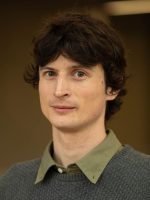
Filip Mazowiecki is joining us from the University of Bordeaux, where he spent the last two years as a postdoc. His research area is formal verification, the study of verifying correct functioning of systems. He is mostly interested in the theoretical analysis of models like Petri nets and weighted automata, working on fundamental questions like reachability and equivalence.
Filip obtained his PhD at the University of Warsaw on the topic of database theory.
...Filip Mazowiecki is joining us from the University of Bordeaux, where he spent the last two years as a postdoc. His research area is formal verification, the study of verifying correct functioning of systems. He is mostly interested in the theoretical analysis of models like Petri nets and weighted automata, working on fundamental questions like reachability and equivalence.
Filip obtained his PhD at the University of Warsaw on the topic of database theory. After he obtained his PhD he switched to the area of formal verification, spending almost four years as a postdoc at the Universities of Warwick, Oxford and Bordeaux.

The TOROS project, kindly supported by an ERC starting grant, is looking to fill several open PhD and Postdoc positions. Candidates with prior experience in
are particularly welcome. Check out the project page for details.
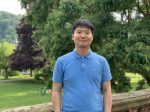
Keon Jang has joined the institute as a tenure-track faculty member, effective February 1, 2019. Keon Jang is joining us from Google, where he has been a software engineer since 2016. He is broadly interested in network systems and currently his work focuses on network performance isolation in data-center networks.
Prior to Google, he worked on software support for on network function virtualization (NFV) at Intel Labs. He received his PhD in Computer Science from KAIST,
...Keon Jang has joined the institute as a tenure-track faculty member, effective February 1, 2019. Keon Jang is joining us from Google, where he has been a software engineer since 2016. He is broadly interested in network systems and currently his work focuses on network performance isolation in data-center networks.
Prior to Google, he worked on software support for on network function virtualization (NFV) at Intel Labs. He received his PhD in Computer Science from KAIST, and subsequently held a postdoctoral research position at Microsoft Research Cambridge, UK.
Krishna Gummadi has accepted the position of scientific member of the Max Planck Society and director at the MPI for Software Systems, effective 1 June 2019. Krishna has been a faculty member at the institute since July 2005.
Krishna's appointment solidifies our institute's foothold in the emerging area of social computing and secures Krishna's leadership and contributions to the institute for the future.
The Max Planck Institute for Software Systems (MPI-SWS) is inviting applications for Junior Research Group leader positions in systems and machine learning (SysML), human-oriented machine learning (fairness, accountability, transparency, and ethical aspects of AI), adversarial ML, reinforcement learning, human-computer interaction with ML/social aspects, natural language processing, and learning & cognitive sciences.
Our Junior Research Group program offers young scientists the opportunity to develop their own research program. The position is funded for 5 years with the possibility of a 2-year extension.
...The Max Planck Institute for Software Systems (MPI-SWS) is inviting applications for Junior Research Group leader positions in systems and machine learning (SysML), human-oriented machine learning (fairness, accountability, transparency, and ethical aspects of AI), adversarial ML, reinforcement learning, human-computer interaction with ML/social aspects, natural language processing, and learning & cognitive sciences.
Our Junior Research Group program offers young scientists the opportunity to develop their own research program. The position is funded for 5 years with the possibility of a 2-year extension. Applicants must have completed a doctoral degree in computer science or related areas and must have demonstrated outstanding research vision and potential to successfully lead a research group. Successful candidates are expected to build a highly visible research agenda, to mentor junior scientists, and to participate in collaborative projects.
The Max Planck Institute for Software Systems is located in Saarbruecken and Kaiserslautern in Germany. We maintain an open, international, and diverse work environment and seek applications from outstanding researchers regardless of national origin. Our working language is English. We collaborate with several major research institutions worldwide and have high international visibility. There is generous travel, administrative, and technical support available for all group members.
Please apply at https://apply.mpi-sws.org/ under ``Research Group Leader''. You need to upload your CV, a research plan, an optional teaching statement, and 3-5 references. Reviewing of applications will commence on 15 May 2019 and will continue until the positions are filled. The expecting starting date for the position is Fall 2019. Informal inquiries can be addressed to applications-sis@mpi-sws.org.
The Max Planck Society is committed to employing more individuals with disabilities and expressly welcomes them to apply. The Max Planck Society seeks to increase the percentage of women in the areas where they are underrepresented and expressly welcomes them to apply.
Derek Dreyer has been selected as general chair of the 24th ACM SIGPLAN International Conference on Functional Programming, to be held August 19-21, 2019 in Berlin. ICFP is an international conference providing a forum for researchers and developers to hear about the latest work on the design, implementations, principles, and uses of functional programming.

Congratulations, everyone! We are proud that MPI-SWS alumni have spread far and wide, pursuing successful research careers all across the globe.

Georg Zetzsche has joined the institute as a tenure-track faculty member, effective November 1, 2018. He is joining us from the Institut de Recherche en Informatique Fondamentale (IRIF) at Université Paris-Diderot, where he has been a postdoctoral researcher. Georg's goal is to understand which questions about program behaviors and other infinite structures can be answered efficiently. His research focuses on issues of decidability, complexity, synthesis, and expressiveness arising in program verification and mathematics.
Georg was previously a postdoctoral researcher in the Laboratoire Spécification et Vérification (LSV) at ENS Paris-Saclay.
...Georg Zetzsche has joined the institute as a tenure-track faculty member, effective November 1, 2018. He is joining us from the Institut de Recherche en Informatique Fondamentale (IRIF) at Université Paris-Diderot, where he has been a postdoctoral researcher. Georg's goal is to understand which questions about program behaviors and other infinite structures can be answered efficiently. His research focuses on issues of decidability, complexity, synthesis, and expressiveness arising in program verification and mathematics.
Georg was previously a postdoctoral researcher in the Laboratoire Spécification et Vérification (LSV) at ENS Paris-Saclay. He obtained his PhD from the University of Kaiserslautern and his Diplom degree from Universität Hamburg. For his PhD work, Georg received the EATCS Distinguished Dissertation Award.
Applications are invited for tenure-track faculty in all areas of computer science. Pending final approval, we expect to fill one position.
A doctoral degree in computer science or related areas and an outstanding research record are required. Successful candidates are expected to build a team and pursue a highly visible research agenda, both independently and in collaboration with other groups.
MPI-SWS is part of a network of over 80 Max Planck Institutes,
...Applications are invited for tenure-track faculty in all areas of computer science. Pending final approval, we expect to fill one position.
A doctoral degree in computer science or related areas and an outstanding research record are required. Successful candidates are expected to build a team and pursue a highly visible research agenda, both independently and in collaboration with other groups.
MPI-SWS is part of a network of over 80 Max Planck Institutes, Germany’s premier basic-research organisations. MPIs have an established record of world-class, foundational research in the sciences, technology, and the humanities. The institute offers a unique environment that combines the best aspects of a university department and a research laboratory: Faculty enjoy full academic freedom, lead a team of doctoral students and post-docs, and have the opportunity to teach university courses; at the same time, they enjoy ongoing institutional funding in addition to third-party funds, a technical infrastructure unrivaled for an academic institution, as well as internationally competitive compensation.
The institute is located in the German cities of Saarbruecken and Kaiserslautern, in the tri-border area of Germany, France, and Luxembourg. We maintain an international and diverse work environment and seek applications from outstanding researchers worldwide. The working language is English; knowledge of the German language is not required for a successful career at the institute.
Qualified candidates should apply on our application website (apply.mpi-sws.org). To receive full consideration, applications should be received by December 1st, 2018.
The institute is committed to increasing the representation of women and minorities, as well as of individuals with physical disabilities. We particularly encourage such individuals to apply. The initial tenure-track appointment is for five years; it can be extended to seven years based on a midterm evaluation in the fourth year. A permanent contract can be awarded upon a successful tenure evaluation in the sixth year.
MPI-SWS researcher Mitra Nasri will join TU Delft as an assistant professor starting October 1, 2018. Congratulations, Mitra!
The RustBelt project, kindly supported by an ERC Consolidator Grant, is looking to fill several open PhD and Postdoc positions.
POSTDOCS: We are seeking exceptional candidates with a strong, internationally competitive track record of research in programming languages and/or verification. The primary criterion is quality, but I am particularly interested in candidates who have specialized expertise in one or more of the following areas:
- Rust - substructural/ownership type systems - verification of concurrent programs - weak/relaxed memory models - interactive theorem proving in Coq - compiler verification
Experience programming in Rust is a welcome bonus,
...The RustBelt project, kindly supported by an ERC Consolidator Grant, is looking to fill several open PhD and Postdoc positions.
POSTDOCS: We are seeking exceptional candidates with a strong, internationally competitive track record of research in programming languages and/or verification. The primary criterion is quality, but I am particularly interested in candidates who have specialized expertise in one or more of the following areas:
- Rust - substructural/ownership type systems - verification of concurrent programs - weak/relaxed memory models - interactive theorem proving in Coq - compiler verification
Experience programming in Rust is a welcome bonus, but not required.
STUDENTS: We are seeking exceptional candidates who have at least some background in programming language theory and/or formal methods, and who are eager to work on deep foundational problems with the potential for direct impact on a real, actively developed language. A bachelor's or master's degree is required. For more details about the MPI-SWS graduate program, see here: https://www.mpi-sws.org/graduate-studies/.
Successful applicants will join the Foundations of Programming group, led by Derek Dreyer at the Max Planck Institute for Software Systems (MPI-SWS) in Saarbruecken, Germany. Current and former postdocs in the group have included Andreas Rossberg (co-designer of WebAssembly), Chung-Kil Hur, Neel Krishnaswami, Aaron Turon (manager of the Rust project at Mozilla), Jacques-Henri Jourdan, Ori Lahav, Pierre-Marie Pédrot, and Azalea Raad. Current and former PhD students in the group have included Georg Neis, Beta Ziliani, Scott Kilpatrick, David Swasey, Ralf Jung, Jan-Oliver Kaiser, Hoang-Hai Dang, Marko Doko, and @pythonesque. The RustBelt project benefits from longstanding active collaborations with Viktor Vafeiadis (MPI-SWS), Lars Birkedal (Aarhus University), Chung-Kil Hur & Jeehoon Kang (Seoul National University), Deepak Garg (MPI-SWS), and Robbert Krebbers (TU Delft), as well as the many contributors to the Iris project (http://iris-project.org).
The working language at MPI-SWS is English.
Application deadline: OCTOBER 31. If you are interested in joining the RustBelt team and want to learn more about the project, please contact Derek Dreyer directly at dreyer@mpi-sws.org. To apply for a postdoc (or PhD student) position, please submit a CV (and/or grade transcript), research statement (or statement of purpose), and list of references to https://apply.mpi-sws.org.
For further information, see the project web page at: http://plv.mpi-sws.org/rustbelt/


Jonathan Mace has joined the institute as a tenure-track faculty member, effective September 1, 2018. He is joining us from Brown University, USA, where he has completed his Ph.D. in computer science. Jonathan's research focuses on tools, techniques, and abstractions to make it easier to develop and operate cloud distributed systems. In particular, he is interested in making it easier to reason about and control complicated, end-to-end system behaviors at runtime.
Before starting his Ph.D.,
...Jonathan Mace has joined the institute as a tenure-track faculty member, effective September 1, 2018. He is joining us from Brown University, USA, where he has completed his Ph.D. in computer science. Jonathan's research focuses on tools, techniques, and abstractions to make it easier to develop and operate cloud distributed systems. In particular, he is interested in making it easier to reason about and control complicated, end-to-end system behaviors at runtime.
Before starting his Ph.D., Jonathan worked for two years at IBM UK, and earned his undergraduate degree from Oxford University. He is a recipient of the Facebook Fellowship in Distributed Systems, an SOSP Best Paper Award, and the Honorable Mention for the Dennis Ritchie Thesis Award.
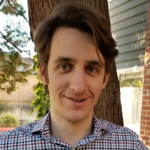
Antoine Kaufmann is joining us from the University of Washington in Seattle, where he obtained his Ph.D. in computer science. His research investigates the design and implementation of efficient, scalable, and robust systems for rapidly evolving modern platforms, with a current focus on data centers. He addresses these challenges from a systems perspective, with solutions that span multiple layers of the systems stack, from operating systems through networks down to hardware, but also programming languages and applications.
...Antoine Kaufmann is joining us from the University of Washington in Seattle, where he obtained his Ph.D. in computer science. His research investigates the design and implementation of efficient, scalable, and robust systems for rapidly evolving modern platforms, with a current focus on data centers. He addresses these challenges from a systems perspective, with solutions that span multiple layers of the systems stack, from operating systems through networks down to hardware, but also programming languages and applications.
Antoine joins the institute as a research group leader, effective Aug 6, 2018. Before his Ph.D., Antoine obtained his Master's and Bachelor's degree from ETH Zurich.
Björn Brandenburg is the program chair of the 25th IEEE Real-Time and Embedded Technology and Applications Symposium (RTAS'19), to be held as part of CPSWeek 2019 in Montreal, Canada from April 16 to April 18, 2019.
RTAS is a top-tier conference with a focus on systems research related to embedded systems or timing issues. The broad scope of RTAS’19 ranges from traditional hard real-time systems to embedded systems without explicit timing requirements,
...Björn Brandenburg is the program chair of the 25th IEEE Real-Time and Embedded Technology and Applications Symposium (RTAS'19), to be held as part of CPSWeek 2019 in Montreal, Canada from April 16 to April 18, 2019.
RTAS is a top-tier conference with a focus on systems research related to embedded systems or timing issues. The broad scope of RTAS’19 ranges from traditional hard real-time systems to embedded systems without explicit timing requirements, including latency-sensitive systems with informal or soft real-time requirements.
Björn Brandenburg and Sriram Sankaranarayanan (University of Boulder, CO) are co-chairs of the 2018 ACM SIGBED International Conference on Embedded Software (EMSOFT'18), to be held in conjunction with Embedded Systems Week (ESWEEK) from October 1-3 in Turin, Italy.
EMSOFT brings together researchers and developers from academia, industry, and government to advance the science, engineering, and technology of embedded software development. Since 2001, EMSOFT has been the premier venue for cutting-edge research in the design and analysis of software that interacts with physical processes,
...Björn Brandenburg and Sriram Sankaranarayanan (University of Boulder, CO) are co-chairs of the 2018 ACM SIGBED International Conference on Embedded Software (EMSOFT'18), to be held in conjunction with Embedded Systems Week (ESWEEK) from October 1-3 in Turin, Italy.
EMSOFT brings together researchers and developers from academia, industry, and government to advance the science, engineering, and technology of embedded software development. Since 2001, EMSOFT has been the premier venue for cutting-edge research in the design and analysis of software that interacts with physical processes, with a long-standing tradition for results on cyber-physical systems, which compose computation, networking, and physical dynamics. See the ESWEEK homepage for further details.
Applications are invited for faculty positions at all career stages in computer science, with a particular emphasis on systems (broadly construed). We expect multiple positions to be filled in systems, but exceptional candidates in other areas of computer science are also strongly encouraged to apply.
A doctoral degree in computer science or related areas and an outstanding research record (commensurate for the applicant's career stage) are required. Successful candidates are expected to build a team and pursue a highly visible research agenda,
...Applications are invited for faculty positions at all career stages in computer science, with a particular emphasis on systems (broadly construed). We expect multiple positions to be filled in systems, but exceptional candidates in other areas of computer science are also strongly encouraged to apply.
A doctoral degree in computer science or related areas and an outstanding research record (commensurate for the applicant's career stage) are required. Successful candidates are expected to build a team and pursue a highly visible research agenda, both independently and in collaboration with other groups.
MPI-SWS is part of a network of over 80 Max Planck Institutes, Germany's premier basic-research organisations. MPIs have an established record of world-class, foundational research in the sciences, technology, and the humanities. The institute offers a unique environment that combines the best aspects of a university department and a research laboratory: Faculty enjoy full academic freedom, lead a team of doctoral students and post-docs, and have the opportunity to teach university courses; at the same time, they enjoy ongoing institutional funding in addition to third-party funds, a technical infrastructure unrivaled for an academic institution, as well as internationally competitive compensation.
The institute is located in the German cities of Saarbruecken and Kaiserslautern, in the tri-border area of Germany, France, and Luxembourg. We maintain an international and diverse work environment and seek applications from outstanding researchers worldwide. The working language is English; knowledge of the German language is not required for a successful career at the institute.
Qualified candidates should apply on our application website (apply.mpi-sws.org). To receive full consideration, applications should be received by December 1st, 2017.
The institute is committed to increasing the representation of minorities, women, and individuals with physical disabilities. We particularly encourage such individuals to apply. The initial tenure-track appointment is for five years; it can be extended to seven years based on a midterm evaluation in the fourth year. A permanent contract can be awarded upon a successful tenure evaluation in the sixth year.
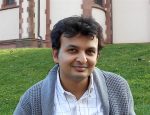
Adish Singla is joining us from ETH Zurich, where he has completed his Ph.D. in computer science. His research focuses on designing new machine learning frameworks and developing algorithmic techniques, particularly for situations where people are an integral part of computational systems. Adish joins the institute as a tenure-track faculty member, effective Oct 1, 2017.
Before starting his Ph.D., he worked as a Senior Development Lead in Bing Search for over three years.
...Adish Singla is joining us from ETH Zurich, where he has completed his Ph.D. in computer science. His research focuses on designing new machine learning frameworks and developing algorithmic techniques, particularly for situations where people are an integral part of computational systems. Adish joins the institute as a tenure-track faculty member, effective Oct 1, 2017.
Before starting his Ph.D., he worked as a Senior Development Lead in Bing Search for over three years. Adish received his Bachelor's degree from IIT Delhi and his Master's degree from EPFL. He is a recipient of the Facebook Fellowship in the area of Machine Learning, the Microsoft Research Tech Transfer Award, and the Microsoft Gold Star Award.

Maria Christakis joins the institute as a tenure-track faculty member, effective Oct 16, 2017. Maria’s goal is to develop theoretical foundations and practical tools for building more reliable and usable software and increasing developer productivity. She is mostly interested in software engineering, programming languages, and formal methods. Maria particularly likes investigating topics in automatic test generation, software verification, program analysis, and empirical software engineering. Her tools and techniques explore novel ways of writing, specifying, verifying,
...Maria Christakis joins the institute as a tenure-track faculty member, effective Oct 16, 2017. Maria’s goal is to develop theoretical foundations and practical tools for building more reliable and usable software and increasing developer productivity. She is mostly interested in software engineering, programming languages, and formal methods. Maria particularly likes investigating topics in automatic test generation, software verification, program analysis, and empirical software engineering. Her tools and techniques explore novel ways of writing, specifying, verifying, testing, and debugging programs in order to make them more robust while at the same time improving the user experience.
Maria joins MPI-SWS from the University of Kent, England, where she is a Lecturer at the School of Computing. She was previously a postdoctoral researcher at Microsoft Research Redmond. Maria received her Ph.D. from the Department of Computer Science of ETH Zurich and was awarded with the ETH medal and the EAPLS Best PhD Dissertation Award. She completed her Bachelor’s and Master’s degrees at the Department of Electrical and Computer Engineering of the National Technical University of Athens, Greece.

MPI-SWS offers a vibrant, dynamic, multi-cultural environment for research and education. We have openings for both graduate students and postdoctoral research scholars.
Graduate students work as members of one or more of the institute's research groups, which perform internationally leading, highly visible research in their respective fields of specialization. Graduate students receive individual training and mentorship from MPI-SWS faculty, preparing them for leadership positions in academic or industrial research.
Postdoctoral Fellows have the opportunity to work with MPI-SWS faculty on existing lines of research,
...MPI-SWS offers a vibrant, dynamic, multi-cultural environment for research and education. We have openings for both graduate students and postdoctoral research scholars.
Graduate students work as members of one or more of the institute's research groups, which perform internationally leading, highly visible research in their respective fields of specialization. Graduate students receive individual training and mentorship from MPI-SWS faculty, preparing them for leadership positions in academic or industrial research.
Postdoctoral Fellows have the opportunity to work with MPI-SWS faculty on existing lines of research, as well as develop their own research agenda under MPI-SWS faculty supervision.
For more information, see the overview of our graduate program, research careers at MPI-SWS, or apply for positions through our application portal.
The Max Planck Society seeks nominations for scientific directors in several research fields, including Computer Science. Nominations should be received by Dec 12, 2016.
Applications are invited for tenure-track faculty positions in all areas related to the theory and practice of software systems, including security and privacy, embedded and mobile systems, distributed and parallel systems, computational social science, legal, economic, and social aspects of computing, NLP, machine learning, information and knowledge management, programming languages, algorithms and logic, and verification.
To receive full consideration, applications should be received by December 15, 2016. For further details see our job ad.
Robert de Simone (INRIA) and Björn Brandenburg are co-chairs of the 2017 ACM SIGBED International Conference on Embedded Software (EMSOFT'17), to be held in conjunction with Embedded Systems Week (ESWEEK) from October 15 until October 20 in Seoul, South Korea.
EMSOFT brings together researchers and developers from academia, industry, and government to advance the science, engineering, and technology of embedded software development. Since 2001, EMSOFT has been the premier venue for cutting-edge research in the design and analysis of software that interacts with physical processes,
...Robert de Simone (INRIA) and Björn Brandenburg are co-chairs of the 2017 ACM SIGBED International Conference on Embedded Software (EMSOFT'17), to be held in conjunction with Embedded Systems Week (ESWEEK) from October 15 until October 20 in Seoul, South Korea.
EMSOFT brings together researchers and developers from academia, industry, and government to advance the science, engineering, and technology of embedded software development. Since 2001, EMSOFT has been the premier venue for cutting-edge research in the design and analysis of software that interacts with physical processes, with a long-standing tradition for results on cyber-physical systems, which compose computation, networking, and physical dynamics. See the ESWEEK homepage for further details.
Rupak Majumdar and Viktor Kuncak (EPFL) are co-chairs of the 29th International Conference on Computer-Aided Verification (CAV 2017), to be held between July 22 and 28, 2017 in Heidelberg, Germany.
CAV 2017 is the 29th in a series dedicated to the advancement of the theory and practice of computer-aided formal analysis and synthesis methods for hardware and software systems. The CAV home page has more information.
Joel Ouaknine is the Program Chair of the Thirty-Second Annual ACM/IEEE Symposium on Logic in Computer Science (LICS), to be held between 20 and 23 June, 2017 in Reykjavik. The LICS Symposium is an annual international forum on theoretical and practical topics in computer science that relate to logic, broadly construed.
Applications are invited for tenure-track faculty positions in all areas related to the theory and practice of software systems, including security and privacy, embedded and mobile systems, distributed and parallel systems, computational social science, legal, economic, and social aspects of computing, NLP, machine learning, information and knowledge management, programming languages, algorithms and logic, and verification.
To receive full consideration, applications should be received by December 15, 2016. For further details see our job ad.
Neel Krishnaswami, a former postdoc in Derek Dreyer's group at MPI-SWS, will be joining the University of Cambridge Computer Laboratory as a University Lecturer.
Congratulations, Neel!
Pramod Bhatotia, who completed his doctoral studies at MPI-SWS, will be joining the University of Edinburgh as a Senior Lecturer of computer science.
Congratulations, Pramod!
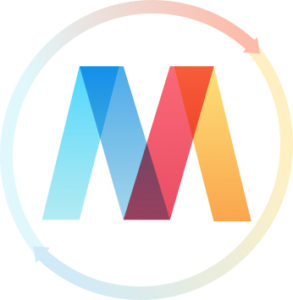
We are pleased to announce the formation of The Maryland Max Planck Ph.D. Program in Computer Science. This program offers students a unique opportunity to pursue a Ph.D. degree under the supervision of faculty from the University of Maryland, USA, and a Max Planck Institute in Germany. Students are co-advised, perform collaborative research, take advantage of the expertise, resources, and culture at both institutions, and spend time in both countries.
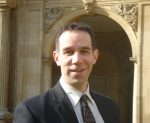
Joel Ouaknine joins the institute's faculty as a scientific director, effective Aug 1, 2016. Joel's research interests include the automated verification of real-time, probabilistic, and infinite-state systems (e.g. model-checking algorithms, synthesis problems, complexity), logic and applications to verification, decision and synthesis problems for linear dynamical systems, automated software analysis, concurrency, and theoretical computer science.
In 2015, Joel was awarded an ERC Consolidator Grant, which provides almost 2 million euros of research funding over a period of five years.
...Joel Ouaknine joins the institute's faculty as a scientific director, effective Aug 1, 2016. Joel's research interests include the automated verification of real-time, probabilistic, and infinite-state systems (e.g. model-checking algorithms, synthesis problems, complexity), logic and applications to verification, decision and synthesis problems for linear dynamical systems, automated software analysis, concurrency, and theoretical computer science.
In 2015, Joel was awarded an ERC Consolidator Grant, which provides almost 2 million euros of research funding over a period of five years. He is also the recipient of the 2010 Roger Needham Award, given annually "for a distinguished research contribution in Computer Science by a UK-based researcher within ten years of his or her PhD."
Joel will join MPI-SWS from the University of Oxford, where he is a Professor of Computer Science and Fellow of St John's College. Joel holds a BSc and MSc in Mathematics from McGill University, and received his PhD in Computer Science from Oxford in 2001. He subsequently did postdoctoral work at Tulane University and Carnegie Mellon University.
We are pleased to announce that two new faculty will join MPI-SWS.

Allen Clement obtained his Ph.D. at the University of Texas at Austin in 2011. Allen's research aims at designing and building systems that continue to work despite the myriad of things that go 'wrong' in deployed systems, including broken components, malicious adversaries, and benign race conditions. His research builds on techniques from distributed systems, security, fault tolerance, and game theory.
...We are pleased to announce that two new faculty will join MPI-SWS.

Allen Clement obtained his Ph.D. at the University of Texas at Austin in 2011. Allen's research aims at designing and building systems that continue to work despite the myriad of things that go 'wrong' in deployed systems, including broken components, malicious adversaries, and benign race conditions. His research builds on techniques from distributed systems, security, fault tolerance, and game theory.
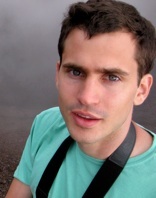
Cristian Danescu-Niculescu-Mizil is joining us from Cornell University, where he obtained his PhD in computer science. Cristian's research aims at developing computational frameworks that can lead to a better understanding of human social behavior, by unlocking the unprecedented potential of the large amounts of natural language data generated online. His work tackles problems related to conversational behavior, opinion mining, computational semantics and computational advertising.

We are pleased to announce that three new faculty will join MPI-SWS this fall.
Björn Brandenburg is joining us from the University of North Carolina at Chapel Hill (UNC), where he obtained his Ph.D. in computer science. Björn's research interests include multiprocessor real-time system, real-time synchronization protocols, and operating systems. Björn is the lead designer and developer of LITMUSRT, an extension of the Linux kernel for real-time scheduling and synchronization on multicore platforms.
...We are pleased to announce that three new faculty will join MPI-SWS this fall.
Björn Brandenburg is joining us from the University of North Carolina at Chapel Hill (UNC), where he obtained his Ph.D. in computer science. Björn's research interests include multiprocessor real-time system, real-time synchronization protocols, and operating systems. Björn is the lead designer and developer of LITMUSRT, an extension of the Linux kernel for real-time scheduling and synchronization on multicore platforms.
Deepak Garg is joining us from the Cybersecurity Lab (CyLab) at Carnegie Mellon University, where he was a post-doctoral researcher. He obtained his Ph.D. from Carnegie Mellon's Computer Science Department. His research interests are in the areas of computer security and privacy, formal logic and programming languages. He is specifically interested in logic-based models of secure systems and formal analysis of security properties of systems.
Ruzica Piskac is joining us from EPFL, where she has completed her Ph.D. in computer science. The goal of her research is to make software development easier and software more reliable via automated reasoning techniques. She is specifically interested in decision procedures, their combinations and applications in program verification and software synthesis.
Two MPI-SWS alumni — Andreas Haeberlen and Alan Mislove — have received NSF CAREER awards. The CAREER award is the National Science Foundation's most prestigious award in support of junior faculty who exemplify the role of teacher-scholars through outstanding research, excellent education and the integration of education and research.
Andreas Haeberlen, now an Assistant Professor in the department of Computer and Information Science at the University of Pennsylvania, has received the award for his proposal "Evidence in Federated Distributed Systems."
Alan Mislove,
...Two MPI-SWS alumni — Andreas Haeberlen and Alan Mislove — have received NSF CAREER awards. The CAREER award is the National Science Foundation's most prestigious award in support of junior faculty who exemplify the role of teacher-scholars through outstanding research, excellent education and the integration of education and research.
Andreas Haeberlen, now an Assistant Professor in the department of Computer and Information Science at the University of Pennsylvania, has received the award for his proposal "Evidence in Federated Distributed Systems."
Alan Mislove, now an Assistant Professor in the College of Computer and Information Science at Northeastern University, has received the award for his proposal "Systems for the Emerging Patterns of Content Exchange."
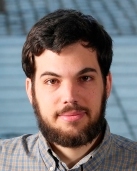
Viktor Vafeiadis joins the institute's faculty, starting in October 2010. Viktor's research interests are in software analysis and verification, programming languages, programming logics, and concurrency.
Viktor's research contributions include inventing new concurrent program logics (RGSep & deny/guarantee); developing automated verification tools (SmallfootRG & Cave) for proving correctness properties of concurrent algorithms; and verifying some particularly challenging algorithms manually (e.g., mcas), mechanically (e.g., fast congruence closure), or automatically (e.g., lazy set).
Viktor received his B.A.
...Viktor Vafeiadis joins the institute's faculty, starting in October 2010. Viktor's research interests are in software analysis and verification, programming languages, programming logics, and concurrency.
Viktor's research contributions include inventing new concurrent program logics (RGSep & deny/guarantee); developing automated verification tools (SmallfootRG & Cave) for proving correctness properties of concurrent algorithms; and verifying some particularly challenging algorithms manually (e.g., mcas), mechanically (e.g., fast congruence closure), or automatically (e.g., lazy set).
Viktor received his B.A. degree in Computer Science in 2004 and his Ph.D. degree in Computer Science in 2008 both from the University of Cambridge. After that, he held post-doctoral research positions at Microsoft Research and at the University of Cambridge.
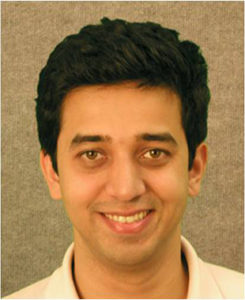
Rupak Majumdar joins the institute's faculty as a scientific director. Rupak's research interests are in computer-aided verification and control of reactive, real-time, hybrid, and probabilistic systems; software verification and programming languages; and logic and automata theory.
Rupak's research spans the spectrum of formal verification techniques, ranging from theoretical foundations of logic and automata theory to practical software engineering tools that systematically analyze thousands of lines of code for programmer errors. In the field of software model checking,
...Rupak Majumdar joins the institute's faculty as a scientific director. Rupak's research interests are in computer-aided verification and control of reactive, real-time, hybrid, and probabilistic systems; software verification and programming languages; and logic and automata theory.
Rupak's research spans the spectrum of formal verification techniques, ranging from theoretical foundations of logic and automata theory to practical software engineering tools that systematically analyze thousands of lines of code for programmer errors. In the field of software model checking, Rupak has made major contributions. Rupak, along with Ranjit Jhala, wrote the the model checker Blast, which is able to analyze over 100,000 lines of code for complex temporal properties. This achievement was a major milestone and proof of feasibility in the field of software verification and led to a flurry of academic and industrial activity in the area.
Rupak joins MPI-SWS from the University of California, Los Angeles, where he was on the faculty of the computer science department. Prior to that, Rupak received his Ph.D. degree in Computer Science from the University of California at Berkeley, and his B.Tech. degree in Computer Science from the Indian Institute of Technology at Kanpur.
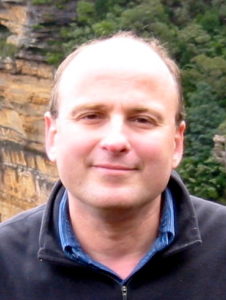
Robert Harper has been appointed as the institute's first external scientific member. Dr. Harper is a Professor of Computer Science at Carnegie Mellon University, where he conducts research on programming language design and implementation. Bob will be visiting the institute in Summer 2010.
The external scientific member appointment is a courtesy appointment, which acknowledges the member's scientific excellence, as well as his or her close collaboration and contribution to joint research projects with MPI-SWS faculty and researchers.
...Robert Harper has been appointed as the institute's first external scientific member. Dr. Harper is a Professor of Computer Science at Carnegie Mellon University, where he conducts research on programming language design and implementation. Bob will be visiting the institute in Summer 2010.
The external scientific member appointment is a courtesy appointment, which acknowledges the member's scientific excellence, as well as his or her close collaboration and contribution to joint research projects with MPI-SWS faculty and researchers.
Robert Harper has been a professor in the Computer Science Department at Carnegie Mellon University since 1988. He received his Ph.D. in Computer Science from Cornell University in 1985, and was a post-doctoral research fellow at the Laboratory for Foundations of Computer Science at Edinburgh University from 1985-1988. He is best known for his work on the design, definition, and implementation of Standard ML; the design and application of the LF logical framework; the type-theoretic foundations of modularity in programming languages; the use of typed intermediate languages for certified compilation; the co-invention of self-adjusting computation for dynamic algorithms; and the application of fundamental theory to practical software systems. His current interests include mechanization of the metatheory of programming languages, the integration of types and verification, and the application of programming language theory to computer security.
Andreas Haeberlen has been awarded the 2009 Otto Hahn Medal for outstanding scientific achievement. The medal, and its accompanying monetary prize, will be presented to Andreas at the Max Planck society's annual General Assembly in Hannover on June 16. Andreas's medal was awarded for "pioneering work on accountability in distributed computer systems, in particular for the design, implementation and demonstration of practical techniques for the reliable and tamper-proof detection of complex faults.
...Andreas Haeberlen has been awarded the 2009 Otto Hahn Medal for outstanding scientific achievement. The medal, and its accompanying monetary prize, will be presented to Andreas at the Max Planck society's annual General Assembly in Hannover on June 16. Andreas's medal was awarded for "pioneering work on accountability in distributed computer systems, in particular for the design, implementation and demonstration of practical techniques for the reliable and tamper-proof detection of complex faults. Andreas obtained his PhD in Spring 2009 and is now an Assistant Professor in the Department of Computer and Information Science at the University of Pennsylvania.
Founded in 1948, the Max Planck Society is a non-profit scientific organization affiliated with the Max Planck Institutes. The Society awards the Otto Hahn Medal annually to young scientists in recognition of outstanding scientific achievement. In addition to a stipend, the award gives winners preference for grants enabling them to conduct research abroad for one year.
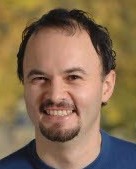
Umut Acar joins the institute's faculty, starting in January 2010. Umut's research interests are in language and algorithm design and implementation, particularly for dynamic systems that interact with changing data from various sources, such as users and the physical environment.
Such systems abound in many areas of computer science. For example, physical simulations often involve objects that move continuously over time, databases host and process data that changes over time (e.g., by introduction of new information records),
...Umut Acar joins the institute's faculty, starting in January 2010. Umut's research interests are in language and algorithm design and implementation, particularly for dynamic systems that interact with changing data from various sources, such as users and the physical environment.
Such systems abound in many areas of computer science. For example, physical simulations often involve objects that move continuously over time, databases host and process data that changes over time (e.g., by introduction of new information records), and connectivity in networks and distributed systems changes as links go down or come alive.
Umut's primary research focus has been self-adjusting computation, where computations respond automatically to modifications to their data. With his collaborators, he designs languages for developing self-adjusting programs, researches techniques for analyzing their complexity, and evaluates the proposed techniques by considering problem domains such as computational geometry, machine learning, and scientific computing. Umut's other interests include parallel computing, databases, and design and implementation of high-level languages.
Umut Acar received his B.S. in Computer Science from Bilkent University-Turkey in 1997, his M.A. from University of Texas at Austin in 1999, and his Ph.D. from Carnegie Mellon University in 2004. Umut joins MPI-SWS from the Toyota Technological Institute of Chicago, where he was an assistant professor from 2005 to 2009.
Krishna Gummadi, Ph.D., accepts a position on the faculty of the MPI for Software Systems as an independent researcher. This position is comparable to a tenure-track Assitant Professor position at a U.S. University.
Krishna hold a B.Tech. degree from IIT Madras, and the M.S. and Ph.D. degrees from the University of Washington in Seattle, all in Computer Science and Engineering. Krishna has gained international recognition for his research on networked systems,
...Krishna Gummadi, Ph.D., accepts a position on the faculty of the MPI for Software Systems as an independent researcher. This position is comparable to a tenure-track Assitant Professor position at a U.S. University.
Krishna hold a B.Tech. degree from IIT Madras, and the M.S. and Ph.D. degrees from the University of Washington in Seattle, all in Computer Science and Engineering. Krishna has gained international recognition for his research on networked systems, as the recipient of three best paper awards at leading conferences in his area and as the main author of the most cited computer science articles in 2003 and 2004, respectively, according to citeseer. He will join the MPI for Software Systems in October 2005.
Prof. Peter Druschel, Ph.D., accepts the position of Founding Director of the MPI for Software Systems. Peter comes from Rice University in Houston, TX, where he has spent eleven years as Assistant Professor (1994-2000), Associate Professor (2000-2002) and Full Professor (2002-) of Computer Science. Peter also spent time teaching and researching at the University of Paris VI, at Microsoft Research in Cambridge, UK, and at the Massachussets Institute of Technology (MIT) in Boston.
...Prof. Peter Druschel, Ph.D., accepts the position of Founding Director of the MPI for Software Systems. Peter comes from Rice University in Houston, TX, where he has spent eleven years as Assistant Professor (1994-2000), Associate Professor (2000-2002) and Full Professor (2002-) of Computer Science. Peter also spent time teaching and researching at the University of Paris VI, at Microsoft Research in Cambridge, UK, and at the Massachussets Institute of Technology (MIT) in Boston. He holds a Dipl.-Ing. (FH) degree in Electrical Engineering from Fachhochschule Munich, and the M.S. and Ph.D. degrees in Computer Science from the University of Arizona. Peter conducts research in experimental distributed systems, with a focus on self-organizing, decentralized and autonomous systems. He is the recipient of a National Science Foundation CAREER Award and an Alfred P. Sloan Fellowship.
In the spring of 2009, MPI-SWS graduated its first four PhD students—Andreas Haeberlen, Alan Mislove, Animesh Nandi, and Atul Singh. All four students have landed competitive academic or research positions in a very tight job market.
This fall, Andreas Haeberlen will be an Assistant Professor at the University of Pennsylvania, Alan Mislove will be an Assistant Professor at Northeastern University, Animesh Nandi will be a researcher at Bell Labs, India, and Atul Singh will be a researcher at NEC Labs,
...In the spring of 2009, MPI-SWS graduated its first four PhD students—Andreas Haeberlen, Alan Mislove, Animesh Nandi, and Atul Singh. All four students have landed competitive academic or research positions in a very tight job market.
This fall, Andreas Haeberlen will be an Assistant Professor at the University of Pennsylvania, Alan Mislove will be an Assistant Professor at Northeastern University, Animesh Nandi will be a researcher at Bell Labs, India, and Atul Singh will be a researcher at NEC Labs, Princeton. The students received their PhD degrees from Rice University after spending the last several years of their graduate studies at MPI-SWS.
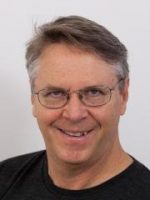
Paul Francis joins the institute's faculty as a scientific director. Paul's work over the years has focused on network routing and addressing problems, with a particular interest in large and self-configuring systems.
Paul's work has had tremendous impact on both research and industrial practice. He is best known for inventing Network Address Translation (NAT), shared multicast trees (which form the basis of PIM-SM), and the use of multiple addresses to scale routing in the face of site multihoming,
...Paul Francis joins the institute's faculty as a scientific director. Paul's work over the years has focused on network routing and addressing problems, with a particular interest in large and self-configuring systems.
Paul's work has had tremendous impact on both research and industrial practice. He is best known for inventing Network Address Translation (NAT), shared multicast trees (which form the basis of PIM-SM), and the use of multiple addresses to scale routing in the face of site multihoming, which was adopted by IPv6.
Paul joins MPI-SWS from Cornell University, where he was on the faculty of the computer science department. Prior to that, Paul spent many years in industry labs such as Bellcore, NTT Research Labs in Tokyo, ACIRI in Berkeley, and at several Silicon Valley startups.
Paul Francis's arrival marks the opening of the insitute's Kaiserslautern site.
We are pleased to announce that three new faculty will join MPI-SWS.
Rodrigo Rodrigues will lead a research group on Dependable Systems. He obtained his Ph.D. from the Massachusetts Institute of Technology and joins us from the Instituto Superior Tecnico in Lisbon.
Derek Dreyer will lead a research group on Type Systems and Functional Programming. He obtained his Ph.D. from Carnegie Mellon University and joins us from the Toyota Technological Institute at Chicago.
...We are pleased to announce that three new faculty will join MPI-SWS.
Rodrigo Rodrigues will lead a research group on Dependable Systems. He obtained his Ph.D. from the Massachusetts Institute of Technology and joins us from the Instituto Superior Tecnico in Lisbon.
Derek Dreyer will lead a research group on Type Systems and Functional Programming. He obtained his Ph.D. from Carnegie Mellon University and joins us from the Toyota Technological Institute at Chicago.
Andrey Rybalchenko will lead a research group on Verification Systems. He previously held a post-doctoral position with Tom Henzinger at EPFL. He is the winner of the Otto-Hahn-Medal of the Max Planck Society.
Michael Backes, Professor at Saarland University, is appointed as a Max Planck Fellow at the MPI for Software Systems for five years. The new Max Planck Fellow program aims to strengthen the cooperation between Max Planck institutes and universities. In addition to his duties at the University, Michael will head a small research group on Information Security and Cryptography at the institute.